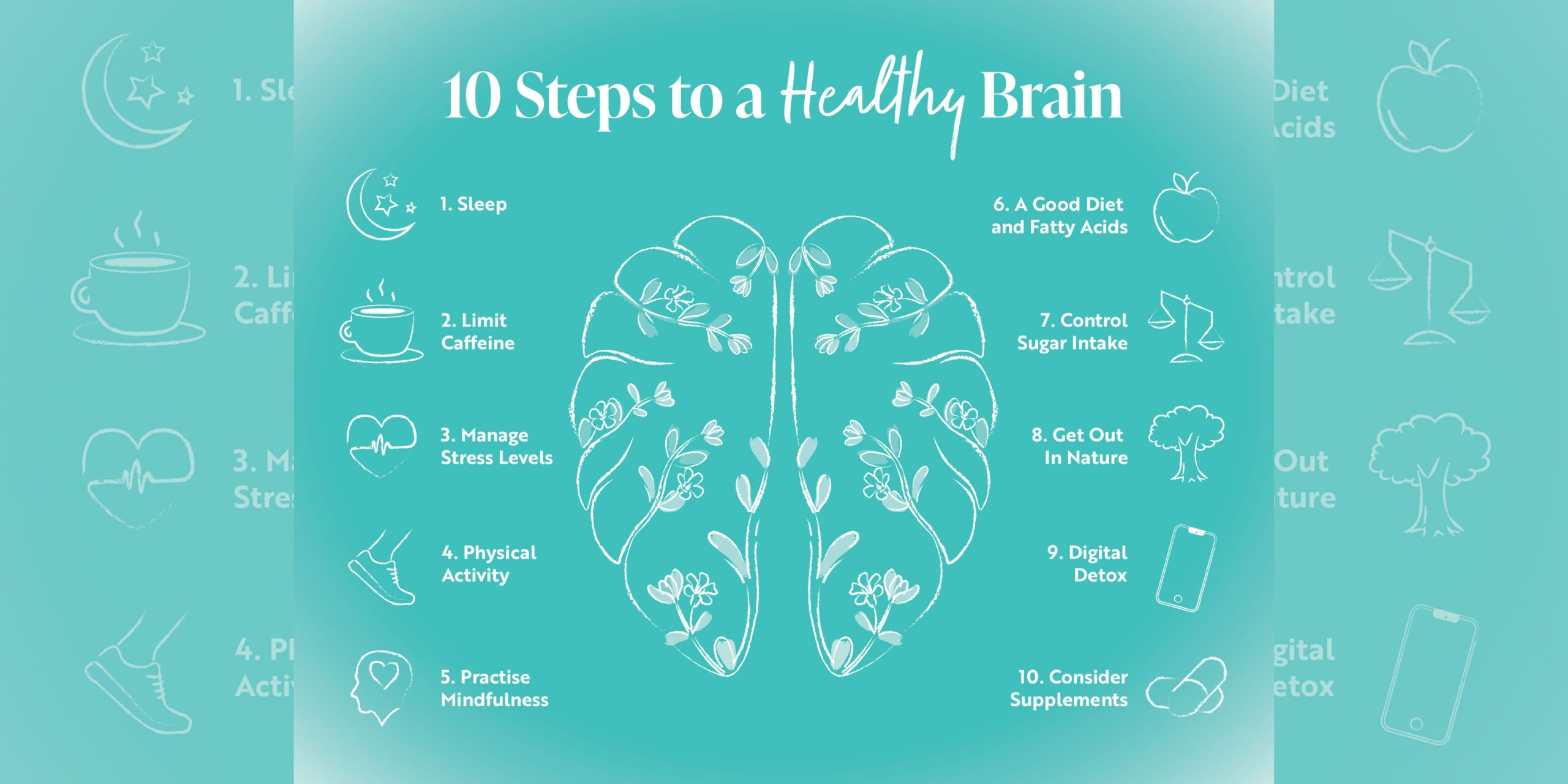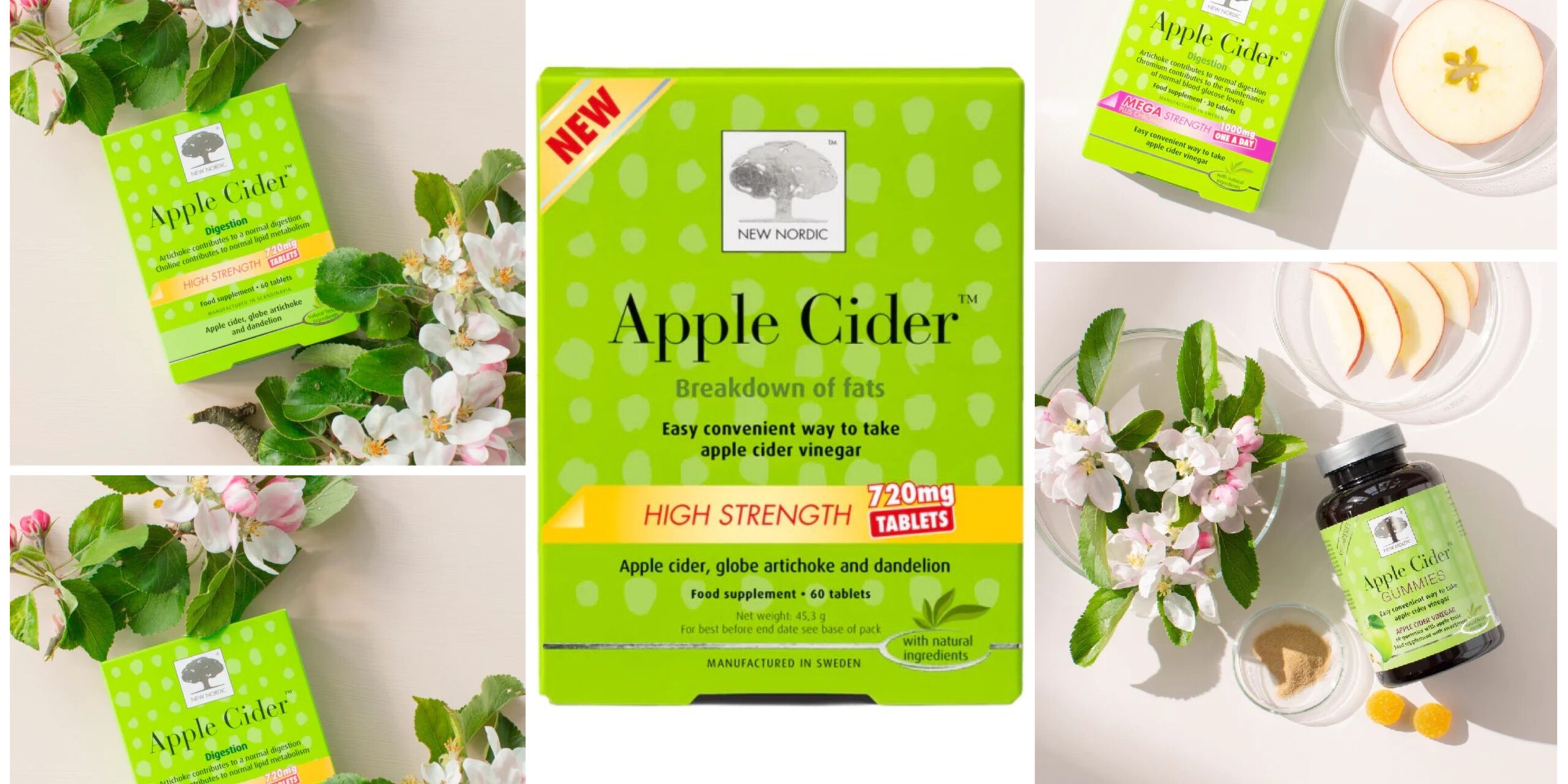
Our brains play a role in just about every body system from walking, controlling our emotions and breathing – making it crucial to keep it in good shape. Keep your brain happy and fit with these 10 practical tips for good brain health.
- Sleep
Sleep is one of the most important factors to support optimal brain function. An average of 7-9 hours of sleep is needed each night to prevent fatigue and tiredness. Research has shown that adequate sleep helps to improve memory and learning, increase attention and creativity, and aid in making decisions.
- Limit caffeine
Caffeine is a stimulant and promotes the central nervous system stimulation, however it blocks adenosine, which is an inhibitory neurotransmitter in the brain that makes you sleepy. As caffeine competes for the same receptors as adenosine, it can cause over stimulation of the brain- so try and only intake caffeine in small quantities, and avoid it in the afternoon and evening to promote sleep
- Manage stress levels
Stress can trigger a chemical change that can make you irritable and can affect your overall mental health. Chronic exposure to the stress hormone cortisol, damages and shrinks the hippocampus, (the brain area involved in verbal memory and learning) changing brain function and altering memory. Try focusing on stress management techniques that can help reduce stress levels in the brain to live a happier life!
- Physical activity
Exercise is not only good for the heart, but important for the brain too! Regular moderate exercise can improve the size of the hippocampus. Physical activity is also beneficial for improving blood flow to the brain and lowering levels of stress hormones… so next time you are thinking of taking the bus, get off a couple of stops early and walk the rest of the way and generally try to incorporate more movement into your day whether at work or home.
- Practice mindfulness
We can all lead busy lives and be guilty of not giving our minds a chance to recover. This is where mindfulness comes in. Practicing mindfulness can allow a person to understand their emotions and stay in the present moment, and has even been associated with structural changes in the brain regions involved in memory, learning, and emotion.
- The role of diet and essential fatty acids
Overall diet can effect brain health. Intakes omega 3 fatty acids such as DHA are needed for proper brain development. Omega 3 fatty acids are also involved in processes that are vital in the maintenance or normal brain function. So try adding them to your daily diet to boost brain power!
- Control sugar intake
Excess sugar impairs our cognitive skills and self-control. Excessive sugar triggers dopamine in the brain, often making us want more of it, but excessive sugar intake can disrupt memory formation. Try avoiding any highly processed foods as these usually contain high levels of hidden sugars and try and opt for fresh fruit and vegetables instead.
- Getting out in nature
Getting outside in nature has shown to increase mental capacity! Being outdoors in greenery has also shown to improve mental health, reduce stress levels, andstimulate clear thinking. So, try getting outdoors on your lunch break, or taking a hike with friends at the weekend. Keeping up social connections is also vital for maintaining thinking skills and slowing cognitive decline.
- Digital detox
The average person spends over six hours a day looking at screens. Whether that is a computer or a mobile. A digital detox can be a good idea to re-set and take some down time. The time and space created by taking a digital detox could boost your creativity and productivity but also allows more time for social connection which is vital for brain health, mental wellbeing and longevity.
- Consider supplements
Food supplements are a great way to ensure that any nutritional gaps from your diet are filled, besides providing a therapeutic amount of a certain nutrient if recommended by a health professional. Furthermore, when an individual is predisposed to an increased risk of a condition, they may have a greater nutrient requirement than their diet can provide. When choosing brain health supplements make sure they contain 100% active ingredients, no binders or fillers. Health food stores are an ideal starting place for nutritional and lifestyle support.
Author: Aimee Benbow is Nutrition Director at Viridian Nutrition. She holds a BSc (Hons) in Nutrition and a Master’s degree in Nutritional Medicine.
For more information come into store or contact us (give contact details!)
The information contained in this article is not intended to treat, diagnose or replace the advice of a health practitioner. Please consult a qualified health practitioner if you have a pre-existing health condition or are currently taking medication. Food supplements should not be used as a substitute for a varied and balanced diet.





